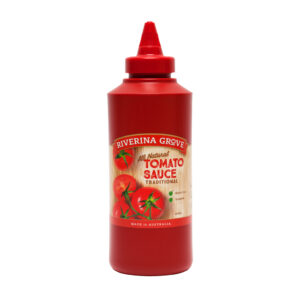
Whether you are gluten intolerant or want to adopt healthier eating habits, starting a gluten-free diet isn’t the easiest thing in the world.
Following a gluten-free diet can almost seem overwhelming at first without possessing the right knowledge beforehand. What main types of foods should you avoid? What exactly is gluten? And what about the little things such as condiments? Are tomato, BBQ and other gluten-free sauces safe to consume or is there particular information you should be reading on the label?
Before you dive into a gluten-free diet, it’s important to understand the basics first.
What exactly is gluten?
Gluten is a group of proteins that is found in cereal grains (seeds that come from grasses) such as spelt, rye, barley and wheat. Gluten gets its name from the Latin word for glue due to the sticky consistency it gives flour when mixed with water. It is responsible for giving bread a chewy texture and the ability to rise when baked.
Why is gluten bad?
If you suffer from coeliac disease, ingesting only around 50 milligrams of gluten is enough to cause damage. This is because the gluten will trigger an immune reaction in the body that will cause damage to the lining of the small intestine. Because this interferes with the process of absorbing the nutrients from ingested foods, it can lead to serious health problems such as infertility, seizures, osteoporosis and nerve damage.
Even those suffering from gluten sensitivity or gluten intolerance can experience the symptoms similar to those suffering from coeliac disease. However, their symptoms are less likely to cause serious intestinal damage.
How can you get tested for coeliac disease?
There are a few simple tests you can have done in Australia to receive a diagnosis if you do in fact suffer from coeliac disease:
- A blood test called coeliac serology is used for screening a person for coeliac disease by measuring the antibody levels in their blood.
- The blood test is then always followed up with a small bowel biopsy. The process involves a simple gastroscopy procedure where tiny samples are collected from the small bowel.
- After being tested for coeliac disease, patients are then put on a ‘gluten challenge’ and monitored to ensure reliable test results.
What are the common symptoms of coeliac disease?
Coeliac disease is an autoimmune disease which makes the body mistake gluten as being a threat to the body. The body then attacks the gluten proteins to try and eliminate the threat. People who suffer from coeliac disease will typically experience symptoms such as diarrhoea, bloating, sharp stomach pain, depression, weight loss, skin rashes, anaemia, stomach discomfort and tiredness.
However, it can be hard to diagnose because some people with coeliac disease don’t suffer from digestive symptoms and only can experience anaemia, depression and fatigue.
What are the common symptoms of gluten intolerance?
A person with gluten intolerance may not test positive for a wheat allergy or coeliac disease, but they will still experience certain symptoms when ingesting gluten. These symptoms are typically tiredness, changes in bowel movements, eczema, bloating and stomach pain.
What types of food should you be avoiding?
Completely eliminating gluten from your diet can be difficult due to gluten being a common ingredient in many foods. Below are the main types of food products that can contain gluten if they are not labelled as gluten-free:
- Unless they are gluten-free sauces, sauces such as marinades, soy sauce, salad dressings and hoisin sauce should be avoided.
- Any pasta that is wheat-based and not gluten-free should be avoided.
- Snack foods such as popcorn, flavoured crisps, flavoured chocolate, pretzels and crackers.
- Beverages such as beer and other alcoholic drinks that are flavoured.
- Baked goods such as muffins, bread crumbs, cookies and cakes, unless labelled gluten-free.
What types of food can you eat?
Now more than ever, there are many gluten-free alternatives and options when it comes to enjoying your favourite meals. Below are the main types of foods that don’t contain gluten unless otherwise labelled:
- Grains such as buckwheat, corn, quinoa, millet, rice, arrowroot and amaranth.
- Eggs are naturally gluten-free and safe to consume on a gluten-free diet.
- Flours and starches such as corn flour, potato flour, coconut flour, chickpea flour and almond flour/meal.
- Cooking oils such as extra virgin olive oil, natural sesame oil, extra virgin coconut oil, sunflower oil and peanut oil.
Buying from food suppliers that offer a range of organic and gluten-free foods makes adjusting to a gluten-free diet much easier. One can find many healthier alternatives to their favourite ingredients such as gluten-free pasta and noodles, gluten-free sauces and pasta sauces, gluten-free relish and much more.
Main health benefits of going gluten-free
- Removing gluten from their diet may boost energy levels in people experiencing symptoms of tiredness and fatigue.
- It can relieve digestive symptoms such as constipation, bloating, diarrhoea, gas and other symptoms.
- Due to eating more healthier foods such as lean proteins, vegetables and fruit, a gluten-free diet can help with weight loss.
- Following a gluten-free diet can help reduce chronic inflammation for people suffering from coeliac disease.
With a variety of gluten-free sauces, flours, pasta and much more, there are many food suppliers that offer healthy food alternatives for people suffering from coeliac disease and gluten intolerance. Search online for a gluten-free foods supplier and explore your options today.
